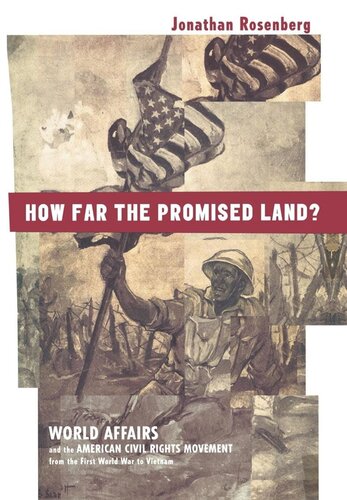

Most ebook files are in PDF format, so you can easily read them using various software such as Foxit Reader or directly on the Google Chrome browser.
Some ebook files are released by publishers in other formats such as .awz, .mobi, .epub, .fb2, etc. You may need to install specific software to read these formats on mobile/PC, such as Calibre.
Please read the tutorial at this link: https://ebookbell.com/faq
We offer FREE conversion to the popular formats you request; however, this may take some time. Therefore, right after payment, please email us, and we will try to provide the service as quickly as possible.
For some exceptional file formats or broken links (if any), please refrain from opening any disputes. Instead, email us first, and we will try to assist within a maximum of 6 hours.
EbookBell Team

4.3
38 reviewsHow Far the Promised Land? explores the relationship between overseas developments and the most important reform movement in modern American history, the struggle for racial justice. Interweaving civil rights history, U.S. foreign relations history, and twentieth-century international history, the book contributes to the emerging effort to reconceptualize the study of America's past by locating it in a global context. In examining the link between international developments and the quest for racial justice, Jonathan Rosenberg argues that civil rights leaders were profoundly interested in the world beyond America and incorporated their understanding of overseas matters into their reform program in order to fortify and legitimize the message they presented to their followers, the nation, and the international community.
The book considers how a cosmopolitan group of black and white, male and female race reform leaders purposively deployed World War I and the peace settlement, the decolonization struggles in Africa and Asia, the emergence of communism and fascism, World War II, and the Cold War to help realize their domestic aspirations. Rosenberg sets this complex story against the backdrop of America's growing activism on the world stage, a development that would have significant positive implications for the domestic struggle. Central to the work is the notion that race reform leaders were animated by the idea of "color-conscious internationalism," a distinctive outlook that would affect the trajectory and momentum of the civil rights movement.